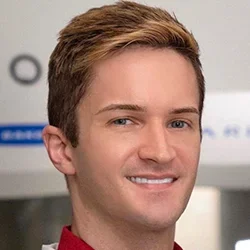Molecular Genetics
What is Molecular Genetics?
Molecular genetics involves studying chromosomes, deoxyribonucleic acid (DNA), and genes, as well as the interactions among three major molecules: DNA, ribonucleic acid (RNA), and protein.

Human Cells
Every nucleus of a human cell contains 46 chromosomes arranged in 23 pairs, 22 autosomes, and two sex chromosomes.
Chromosomes
A chromosome is a long strand of supercoiled DNA bonded with protein molecules called histones. Chromosomes contain genes, the unique sequences that code for specific proteins.
Genes account for a minority of a chromosome’s DNA. Of the remaining DNA, some corrects replication at chromosome termini (telomeres) or regulates movement of chromosomes into daughter cells following cell division (centromeres), but the majority has no known function.
DNA Molecules
The DNA molecule consists of two coiled DNA chains that form a double helix. Each DNA strand has a backbone of 5-carbon sugar (deoxyribose) residues, which are linked by covalent phosphodiester bonds.
On each residue is a nitrogenous base—either a pyrimidine (cytosine [C] or thymine [T]) or a purine (adenine [A] or guanine [G]).
The DNA chains have a polarity determine by the orientation of the sugar-phosphate backbone.
Affiliated Faculty













Affiliated Emeritus Faculty

